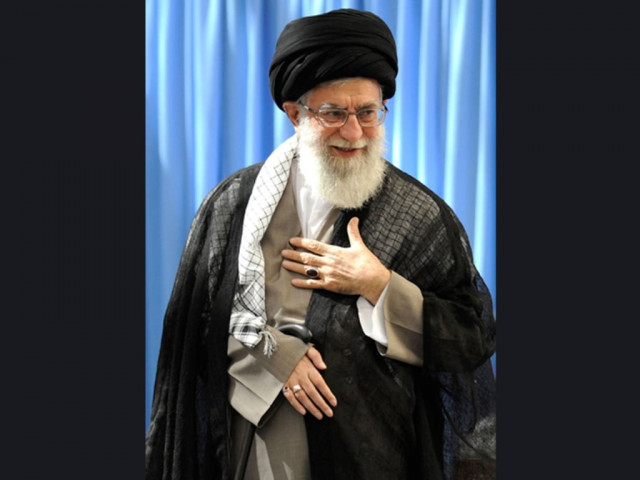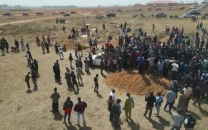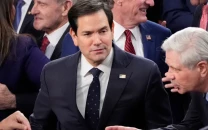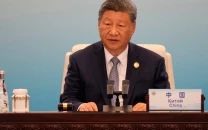Iran's Khamenei urges even those against him to vote
In a speech to thousands in Tehran, Khamenei alluded to his death when drawing attention to importance of polling day

Iran's supreme leader Ayatollah Ali Khamenei. PHOTO: AFP
While the electorate will pick 290 lawmakers on February 26 they will the same day select 88 members for the Assembly, a powerful committee of clerics that monitors the supreme leader's work.
The Assembly has the power to dismiss Khamenei, who is 76 and has led the Islamic republic since 1989, but it’s more likely and most crucial role will be in picking his successor.
Iran won't give up uranium stockpile until military file closed, says Khamenei
In a speech to thousands in Tehran, Khamenei alluded to his death when drawing attention to the importance of polling day.
"As before, we insist everyone, even those who don't believe in the system and the leadership, come to the ballots, as the election belongs to the nation, and the system," Khamenei said.
The Assembly of Experts is Iran's highest clerical body. Its members, like would-be lawmakers, are heavily screened before the ballot, and Khamenei signalled their significant role.
"That day, when the current leader is not in this world, this committee should choose a leader who holds the key to the movement of this revolution," he said.
Iran's Khamenei calls for Syrian elections to solve crisis
"Depending on the composition of the assembly they may choose a leader that stands up to the enemy's attacks, trust in God and continue the path of Imam (Khomeini)," Khamenei said, referring to the founder of the Islamic republic, Ayatollah Ruhollah Khomeini.
"Or there is a possibility that they may choose someone with different characteristics as the leader," Khamenei added.
The comments underscored tension between Iran's competing political blocs over the elections and the future direction of the country.
The Islamic republic, formed in 1979, has swayed between conservatives and more moderate and reform-minded politicians since president Mohammad Khatami was elected in 1997.
During his tenure Khatami, a reformist, and his supporters were backed by the electorate's voting-in of a supportive parliament but many of his planned changes were blocked by the Guardian Council, a conservative-led committee that can veto legislation.
Hassan Rouhani, Iran's current president, is a moderate and his allies are looking to make gains that could overturn the balance of power in a currently conservative-dominated parliament, potentially leading to social and political reforms he promised before being elected in 2013.
After the soon to be implemented deal with world powers on Iran's nuclear programme, Rouhani is seeking to make greater inroads in domestic policy.
However, he has faced criticism from hardline groups about the nuclear deal, with opponents warning it could lead to "infiltration" by the United States and derailment of Iran's revolutionary principles.
The US led the nuclear talks, which also involved Britain, China, France, Russia and Germany, culminating in the July 14 agreement with Iran.



















COMMENTS
Comments are moderated and generally will be posted if they are on-topic and not abusive.
For more information, please see our Comments FAQ